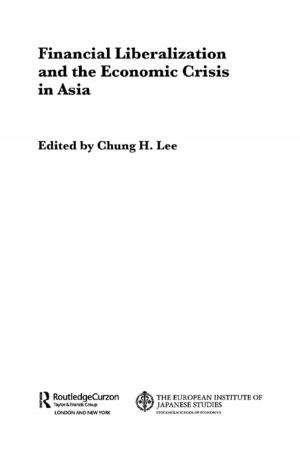Manipulating Democracy
Democratic Theory, Political Psychology, and Mass Media
Nonfiction, Health & Well Being, Psychology, Social Psychology, Social & Cultural Studies, Political Science, Social Science| Author: | ISBN: | 9781136994456 | |
| Publisher: | Taylor and Francis | Publication: | September 22, 2010 |
| Imprint: | Routledge | Language: | English |
| Author: | |
| ISBN: | 9781136994456 |
| Publisher: | Taylor and Francis |
| Publication: | September 22, 2010 |
| Imprint: | Routledge |
| Language: | English |
Manipulation is a source of pervasive anxiety in contemporary American politics. Observers charge that manipulative practices in political advertising, media coverage, and public discourse have helped to produce an increasingly polarized political arena, an uninformed and apathetic electorate, election campaigns that exploit public fears and prejudices, a media that titillates rather than educates, and a policy process that too often focuses on the symbolic rather than substantive.
Manipulating Democracy offers the first comprehensive dialogue between empirical political scientists and normative theorists on the definition and contemporary practice of democratic manipulation. This impressive array of distinguished scholars—political scientists, philosophers, cognitive psychologists, and communications scholars—collectively draw out the connections between competing definitions of manipulation, the psychology of manipulation, and the political institutions and practices through which manipulation is seen to produce a tightly-knit exploration of an issue at the heart of democratic politics.
Manipulation is a source of pervasive anxiety in contemporary American politics. Observers charge that manipulative practices in political advertising, media coverage, and public discourse have helped to produce an increasingly polarized political arena, an uninformed and apathetic electorate, election campaigns that exploit public fears and prejudices, a media that titillates rather than educates, and a policy process that too often focuses on the symbolic rather than substantive.
Manipulating Democracy offers the first comprehensive dialogue between empirical political scientists and normative theorists on the definition and contemporary practice of democratic manipulation. This impressive array of distinguished scholars—political scientists, philosophers, cognitive psychologists, and communications scholars—collectively draw out the connections between competing definitions of manipulation, the psychology of manipulation, and the political institutions and practices through which manipulation is seen to produce a tightly-knit exploration of an issue at the heart of democratic politics.















